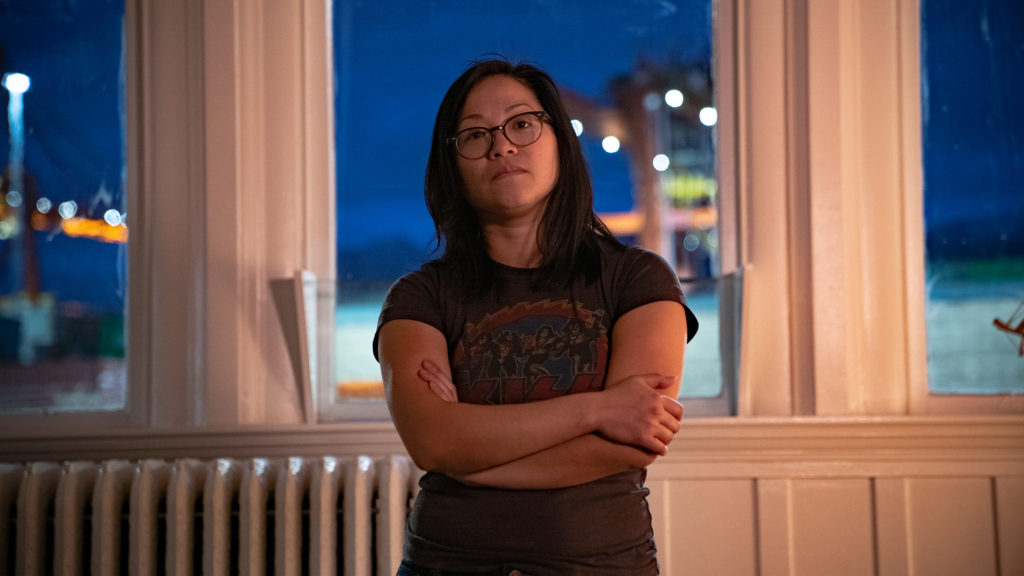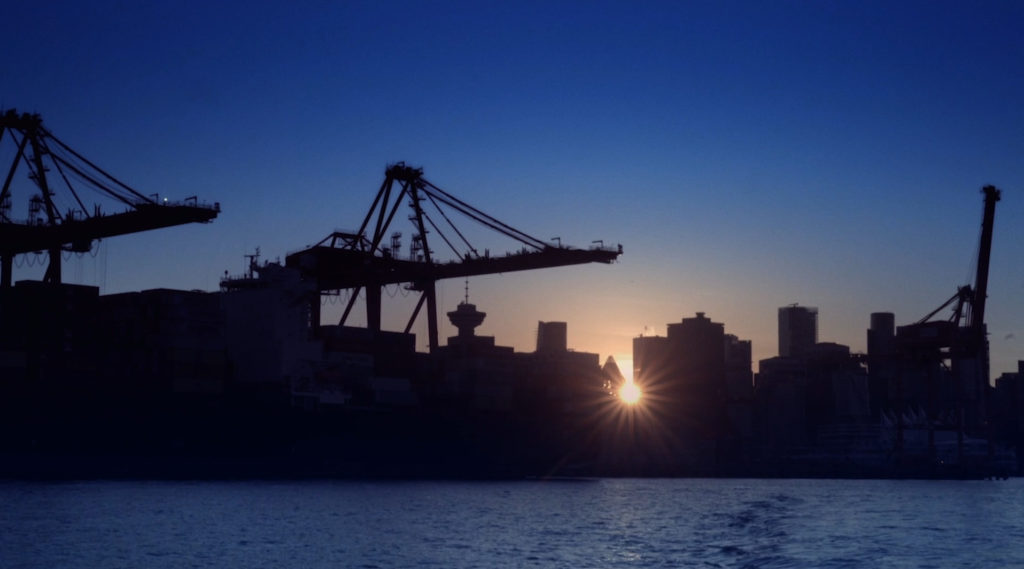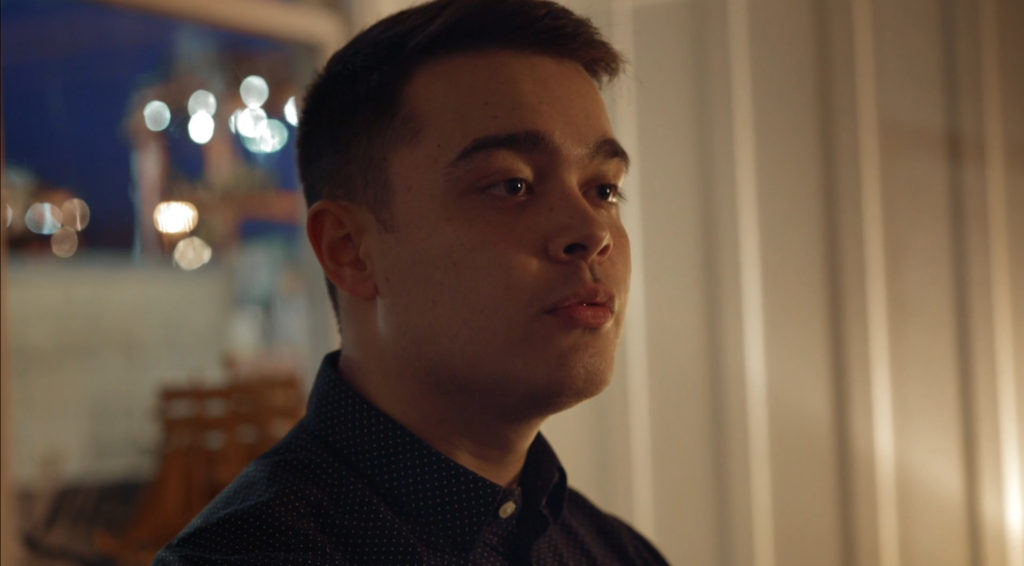By Avneet Takhar
@_younghoney
Airing on June 3 on Knowledge Network, Behind The Facade is a new short film series that uncovers untold stories from underrepresented directors on the backdrop of BC’s historical buildings. We caught up with the women behind the lens, Jessica Hallanbeck, producer at Lantern Films, the umbrella under which this collective was brought together and Joella Cabalu, director of one of the featured shorts, Ode To A Seafaring People.
What was the process in making Behind The Facade happen, and particularly for such a thought-provoking channel like Knowledge Network?
Jessica: It kind of came about when Knowledge Network announced that they would commission 150 shorts to tell the history of British Columbia to coincide with the 150th anniversary of BC joining Confederation which, in and of itself has, you know, many complicated political ramifications.
Just knowing Knowledge Network, what the channel focuses on and who their main demographic is, I thought it was a great opportunity to pitch Behind The Facade, a series about women directors whom I had always admired. [I wanted to highlight] their stories and [we had] an opportunity to do that through 10 different short films. Bringing 10 together at once is something I’ve personally never seen before, so it’s been great.
It was so neat collaborating and having that community kind of come together. It’s been a real labour of love and community!
Joella, as one of the 10 filmmakers handpicked for this project, could you tell us more about your thoughts on coming into a fold of community that represents minority stories, and how you feel being in a project alongside other WOC directors?
Joella: Yes, it’s true that I was handpicked by Jessica, and I was so humbled that she reached out to me to direct the story of Mission To Seafarers, with this connection specifically to Filipino seafarers. You know, their building in Vancouver (401 E Waterfront Road) is so close to where I live and I didn’t even know it existed! That was one of the things that drew me to the project and series in general.
Using these historic buildings as the entry point to talk about what’s untold and unknown, when we’re thinking about the larger history of British Columbia, are presented to really use the directors’ lens to tell the stories. And I think it’s so cool that Jessica and her partner at Lantern Films, Dave, made a concerted effort to invite filmmakers who are from those communities and neighbourhoods.

These shorts are more about depth and diversity than being a ‘Blockbuster’ for the masses. Joella, your feature film Ode To A Seafaring People is an eye-opener to the fact that 90 per cent of all human consumption is brought over by seafarers—something of huge importance to our daily lives. Was there anything else you were surprised to learn about seafarers?
Joella: Yeah, that’s a surprising stat itself. All the food, clothing, and goods you take for granted, and how they just show up in the stores or at your doorstep. So, there was that and the fact that [the] majority of seafarers are Filipino as well. It speaks to this larger economy of overseas foreign workers, it’s like the Philippines’ greatest export is its people.
Here for all of us on the mainland, we just see a vessel. It’s never really dawned on me that there’s actually people on those shipping vessels out on English Bay. And those are the people that bring our goods, that contribute so much to the local economy, but also the global economy.
It makes this connection for me, like in other industries they’re in—healthcare, as migrant farmers, where Filipinos are overrepresented but remain completely invisible. These are all people that are risking their lives and making great sacrifices, not seeing their families for months [or] years on end but they’re still in this precarious labour and precarious citizenship. The Canadian government doesn’t make any commitments to them.
There’s a common thread we wanted to capture throughout the film of sea blindness and invisible eyes. Sol Diana, really captured this feeling (Sol performs spoken word narration throughout the short) and wrote a really great line “We make ghosts out of the living.” I marvel at that. It was remarkable, we just told him, ‘Look this is our research, go write something.’ He was amazing.

Powerful. Speaking to the huge population of Filipinos that are seafarers, did this have an impact on the direction you both took with the narrative, with Joella being Filipinx Canadian?
Joella: I was careful, knowing that I don’t have any family members who are in the seafaring industry. And so there was that learning process and that’s where, again, I used that thread of speaking through the isolation, loneliness and sea blindness through Sol’s poetry.
And thinking of Filipinos in the diaspora, how we connect with each other, I invited people from our community in academia, people who are writers and musicians. Even though those who are watching it may not know who these people are, it was important for the process that the community was involved in telling the story. I approached it kind of like an outsider, but with that connection to our community.
I also really give credit to Jessica for spending the time to speak with people who have connections to the Mission To Seafarers, and with seafarers.
Jessica: Well, my brother lives in the Philippines and I was visiting there with May and Laya, who are Sol’s parents. I was really fortunate to be able to go with Laya to the village that she’s from.
And that was actually the first time that I had ever thought about seafarers because I learned that a lot of her extended family work on boats, and work with seafarers. I think, in a way, this film is a thanks to Laya and May for that invitation to visit with their family, and a reflection on how those profound learning experiences had an impact.

Thank you both so much for your time, this series sounds really exciting! And do you have anything in the pipeline, any collaborations that you’d both like to share?
Joella: Ode To A Seafaring People was kind of like a trial run for me and Jessica on how we work together as director and producer—and it went really well! So we’re developing a feature film together and it’s also again about Filipinos. It’s about interracial relationships, specifically between Filipinos and white people, and how they navigate race and romance against this backdrop of Canadian multi-culturalism. Really asking the question of how interracial couples are talking about race in this time of, you know, Black Lives Matter and anti-Asian racism.
Jessica: Yeah, I’m really excited about our ongoing collaboration! Also in production is something Lantern Films is working on, a feature film called The Empress of Vancouver, and another film, In The Wake directed by Lana Patrick who is one of the directors of this series, Behind The Facade.
Behind The Facade series will air on Knowledge Network and Knowledge.ca on June 3 at 9 p.m for the duration of 25 minutes. There will be a repeat viewing on June 4, 12 p.m. Catch a sneak peak from the trailer.




